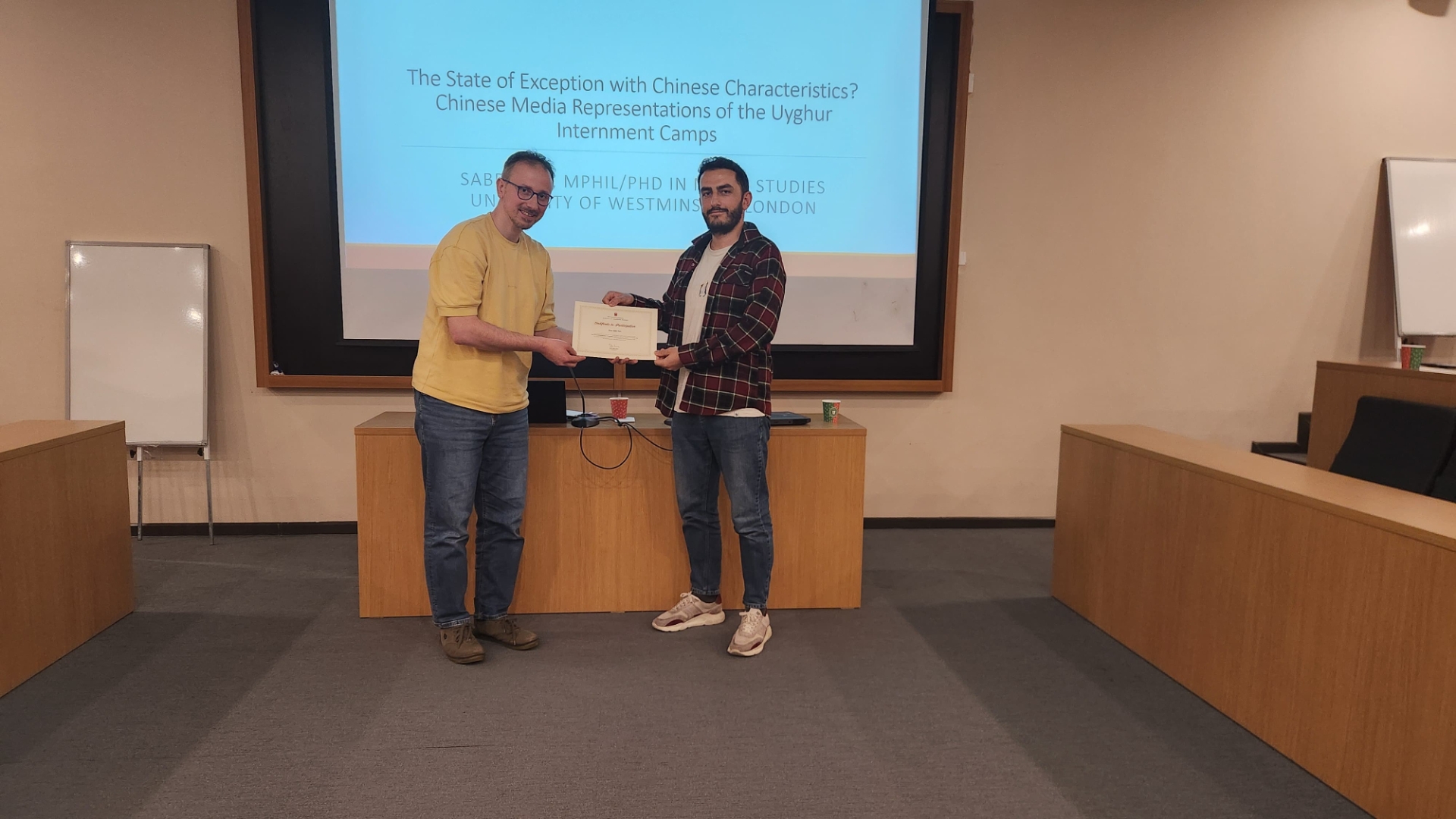


Sabri Ege, who is pursuing his doctoral studies in Media Studies at the University of Westminster, was a guest speaker at a programme organised by the School of Graduate Studies and the School of Communication. The research presentation, held on Thursday, 8 May, focused on Ege's master's thesis entitled “The State of Exception with Chinese Characteristics? A Critical Discourse Analysis of the Representation of Uyghur Internment Camps in English-Language Chinese Media.” The programme was moderated by Dr. Hasan Ramazan Yılmaz, Vice Dean of the School of Graduate Studies and a faculty member in the School of Communication.
In research completed in 2020, Sabri Ege examined how English‑language Chinese media portray the large internment camps in which Uyghur ethnic minorities have been held without charge since 2014 under the People’s Republic of China’s counter‑terrorism measures. Using critical discourse analysis, he analysed English‑language opinion columns published between 2018 and 2020 by Xinhua News Agency and China Global Television Network (CGTN), interpreting them through the concepts of the “War on Terror” (WoT) and the “state of exception.” Ege emphasised that the study shows China normalises the logic of the “state of exception” through security‑, moral‑ and economy‑based narratives.
In his speech, Sabri Ege stated that Chinese security rhetoric has turned security issues in Xinjiang into a strategic discourse similar to the counter-terrorism narratives and stereotypes developed by the US after 9/11, such as ‘Islamic fundamentalism.’ He also highlighted that Chinese media outlets publishing in English have placed Uyghurs in an ambiguous position between enemy and citizen. The research presentation concluded following questions and comments from the audience.